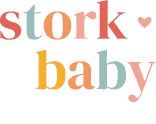The landscape of reproductive technologies has evolved dramatically in recent years, opening new possibilities and opportunities for individuals and couples on the surrogacy journey.
In this blog post, we delve into the groundbreaking advancements in reproductive technologies and medical procedures that are shaping the field of surrogacy.
- In Vitro Fertilization (IVF) Innovations:
In vitro fertilization has long been a cornerstone of assisted reproductive technologies, and ongoing advancements continue to enhance its efficacy. Modern IVF techniques, such as blastocyst culture and preimplantation genetic testing, contribute to higher success rates, offering a greater chance of a successful pregnancy for intended parents. - Embryo Selection and Genetic Screening:
Genetic screening technologies have revolutionized the way embryos are selected for implantation. Preimplantation genetic testing (PGT) allows for the identification of genetic abnormalities, increasing the likelihood of a healthy pregnancy. This not only reduces the risk of genetic disorders but also offers intended parents greater control over the health of their future child. - Surrogacy with Single Embryo Transfer:
Single embryo transfer (SET) is gaining popularity as a safer and more controlled approach in assisted reproduction. This method reduces the risk of multiple pregnancies, which can pose health challenges for both the surrogate and the babies. SET not only promotes a healthier pregnancy but also aligns with a trend toward more personalized and patient-centric care. - Mitochondrial Replacement Therapy:
Emerging on the frontier of reproductive technologies is mitochondrial replacement therapy (MRT). MRT involves replacing defective mitochondria in an egg with healthy mitochondria from a donor egg. While still in the experimental stage, MRT holds promise for preventing the transmission of certain mitochondrial disorders from mother to child. - Artificial Intelligence in Fertility Treatment:
Artificial intelligence (AI) is making significant strides in optimizing fertility treatment outcomes. AI algorithms analyze vast datasets to predict embryo viability and enhance the selection process. This technology empowers fertility specialists to make more informed decisions, increasing the chances of a successful pregnancy. - Uterine Transplants:
Uterine transplants represent a groundbreaking option for women who do not have a functional uterus. While still considered experimental, successful cases have been reported, offering hope to those who desire a biological connection to their child through pregnancy.
As we stand at the intersection of technology and human reproduction, the surrogacy journey is undergoing a remarkable transformation. Advancements in reproductive technologies not only increase the success rates of assisted reproduction but also provide intended parents with unprecedented options for creating and expanding their families.
These breakthroughs not only contribute to the scientific understanding of human reproduction but also exemplify the remarkable possibilities that surrogacy offers. As we look toward the future, it’s evident that the synergy between medical innovation and the surrogacy community will continue to redefine the boundaries of what is possible, creating new paths to parenthood for individuals and couples around the world.
Whatever it is specific to you and your unique circumstances, surrogacy could be a great option for you to build your family. When you hold your little one in your arms, it will not matter so much how they got here, just that they are here, and they are yours. Start your journey to parenthood today.


